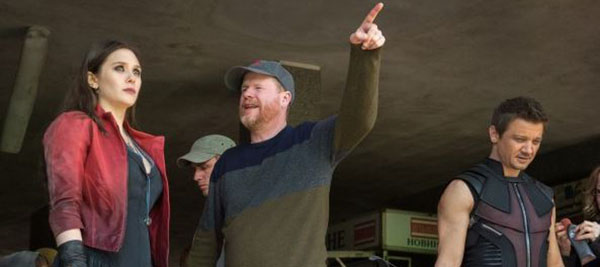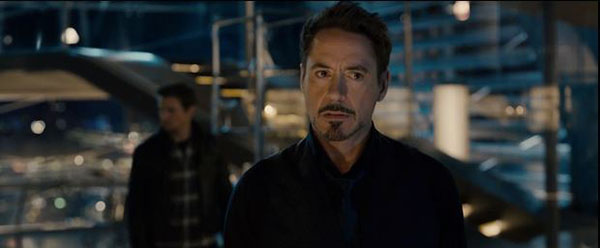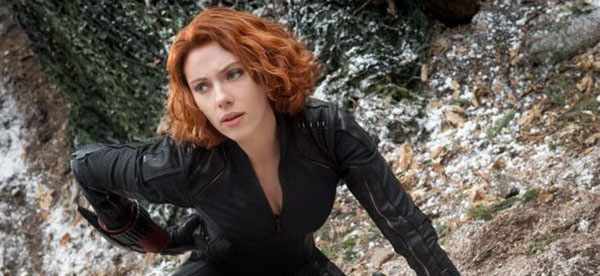When the Marvel cinematic universe was first starting to come together, fans were reveling in the idea that their favorite superheroes would one day cross paths in what seemed to be a movie too gigantic to be real. Now here we are, years later, on the day before the highly anticipated sequel ‘Avengers: Age of Ultron’ is shown to all. At this point the Marvel cinematic universe is the franchise to beat, solidifying a new trend of franchise set-up that many other studios are trying desperately to emulate. But the only thing writer-director Joss Whedon is most concerned about is whether or not the story works.
‘Avengers: Age of Ultron’ takes place a couple years after the events of the first film, placing viewers back in familiar territory with their favorite set of Marvel superheroes. This time there’s a new threat that comes in the form of artificial intelligence, as Ultron (played by James Spader) looks to sculpt a new world that doesn’t involve the world-saving team. Bonds are tested and plenty of fights are dished out as the Avengers struggle to save the world, while still keeping the team intact.
The upcoming sequel presented a lot of challenges for the cast and crew as the stakes get raised even higher. Director Joss Whedon, the cast and Marvel Studios president Kevin Feige speak about the process of creating another epic story in the gigantic franchise.
Q: What does it feel like now to be more than just a voice?
Paul Bettany: Well, the main difference is I have to show up. You know, the great thing is being able to work with all these incredibly creative and talented people. However, I also now have to show up at junkets, so everything’s a double-edged sword.
Q: What were the biggest challenges that you faced putting together the story and then shooting the film? What were the things that surprised you on your journey?
Joss Whedon: There’s like 47 of these people. I really didn’t think that through, and I regret very much doing this at all. It’s just making sure that everybody’s got their moment, that everybody’s got their through-line, that it’s connected to the movie. I have all these people. I love all these people. They’re extraordinary. But making sure that they’re not just all being served, but all within the same narrative structure, that they’re in the same movie, that it’s all connected to the main theme. At some point during the editing process, I could not have told you who they were, who I was, what movie I was making, I got so lost in it. But I think it all came together, it’s just about making these guys look good, which takes a long time.
Q: You started with this grand plan almost a decade ago, so what’s it meant to you to see it all coming to fruition, working with filmmakers like Joss and the rest of the cast you’ve had through all your movies? What’s that experience been like for you, and to see the world connect with the MCU in such a powerful way?
Kevin Feige: Well, it’s been great, of course. It started with the notion of making these movies ourselves, and becoming Marvel Studios, and then it continued with Robert [Downey Jr.] in ‘Iron Man,’ with the notion of having Sam Jackson come in at the end and say: you’re part of a bigger universe, you just don’t know it yet, thinking that most people wouldn’t know what that meant, but occasionally somebody would go: what did that mean? I’d go: it means maybe that we’ll introduce all the different characters and put them together. It’d be great. But the minute that happened, the world sort of got it, much more quickly than I anticipated, and it was awesome, and it continues to be – it’s daunting now cause the expectations before, they didn’t exist. They thought: what are they doing, let’s go on to the next thing. And now it’s crushingly overwhelming expectations, particularly on this movie. But it’s incredible, and it’s incredible, to look down the line and the table keeps getting bigger and bigger. It’s the greatest ensemble ever assembled in cinematic history, and it is amazing to be a part of it.
Q: We get to see a lot of sort of fatherly side of Tony Stark this time. So were you having that kind of thing in mind when you’re playing this role this time?
Robert Downey Jr.: I read Joss’s script, I said, I think this is great. I said: I think this is great. Kevin said, “You never say that. You can’t mean that.” I said, “Yeah, I think it’’s great. Let’s go shoot it.” I thought it was a Swiss watch to begin with and Joss really created some great new situations for Tony to be in, so rather than dig in my heels and try to rewrite every scene, to make them even better, if possible, I showed up and it turned out great.
Q: If you could talk about, as an actor, doing the motion capture, and how you were really able to bring life to this killer robot.
James Spader: I really don’t have any idea what was happening at all – happened very quickly. I really was just trying to hold on and then stay on the train that was moving very, very quickly. But I will say this, that I arrived in London, and within the first half hour they put on a suit, they put on all this gear, and I’d gone through a range of motion. And then within 15 minutes, I was watching me walk around a big room, moving and doing this and that and everything else, and watching Ultron, or at least a formative stage of Ultron, on a monitor in front of me. And it just – it started right there. And the next day, I was on the set shooting a scene with Scarlett. And so really that pace was what it was, through the entire project. And luckily I’d had some conversations with Joss and one fantastic meal with a whole bunch of wine to figure out who this guy was. And that was it. That really was it. It was just trying to hold on.
Q: There were a lot of Hawkeye fans that felt a little shortchanged actually in the first Avengers because one of their favorite heroes wasn’t focused on as much as they would have liked. But we see a much greater emphasis on Barton in this particular film. Talk a little bit about what you were hoping to see Barton evolve into in this film, and your first reactions when you read the script and you saw the role he was going to play in this one.
Jeremy Renner: Well, I speak in this movie, which is awesome, and I become part of the team, which is awesome. And dive into some really killer aspects of – I really – when sitting down with Joss, and even Kevin back in the day, about why I liked him. Why I wanted to play Hawkeye, is cause I didn’t understand, I could never do like what these gentlemen do. I don’t have that creative of a mind. I understood Hawkeye in the sense that he’s a human just with a high skill set, so I could tap into that, and I feel like I got to explore a little bit more of that, even outside the skill set. I thought that was a really, really endearing and thoughtful sort of secret that he had, and I’m excited to kind of see where that goes.
Q: Could you talk a little bit about where you see Black Widow even going from here, once we get to the end of this film.
Scarlett Johansson: I think that in the beginning of Avengers 2, there’s some sense finally of there being a kind of normal, in a way. It’s a well-oiled machine where tag teaming each other, the introductions are over and we’re at work. We’re digging our heels in, and at the end of Avengers 2, I think Widow let her guard down. She was hopeful for something. I think she had this moment of false hope where she kind of felt like she put in the work and there should be some kind of personal payoff and she was ready to accept it. She realizes that her calling is a greater one and that’s not necessarily something that she’s thrilled about, but that’s kind of what is most heroic about her is that she’s accepting the call of duty, even at her own personal loss. And I think it’s an interesting place to kind of leave her there, because there’s many different directions to go. Is she going to be able to withstand this huge weight that’s bearing down on her or is she going to crack under it. But I guess we’ll have to wait and see, right?
‘Avengers: Age of Ultron’ comes out in theaters everywhere this Friday.



